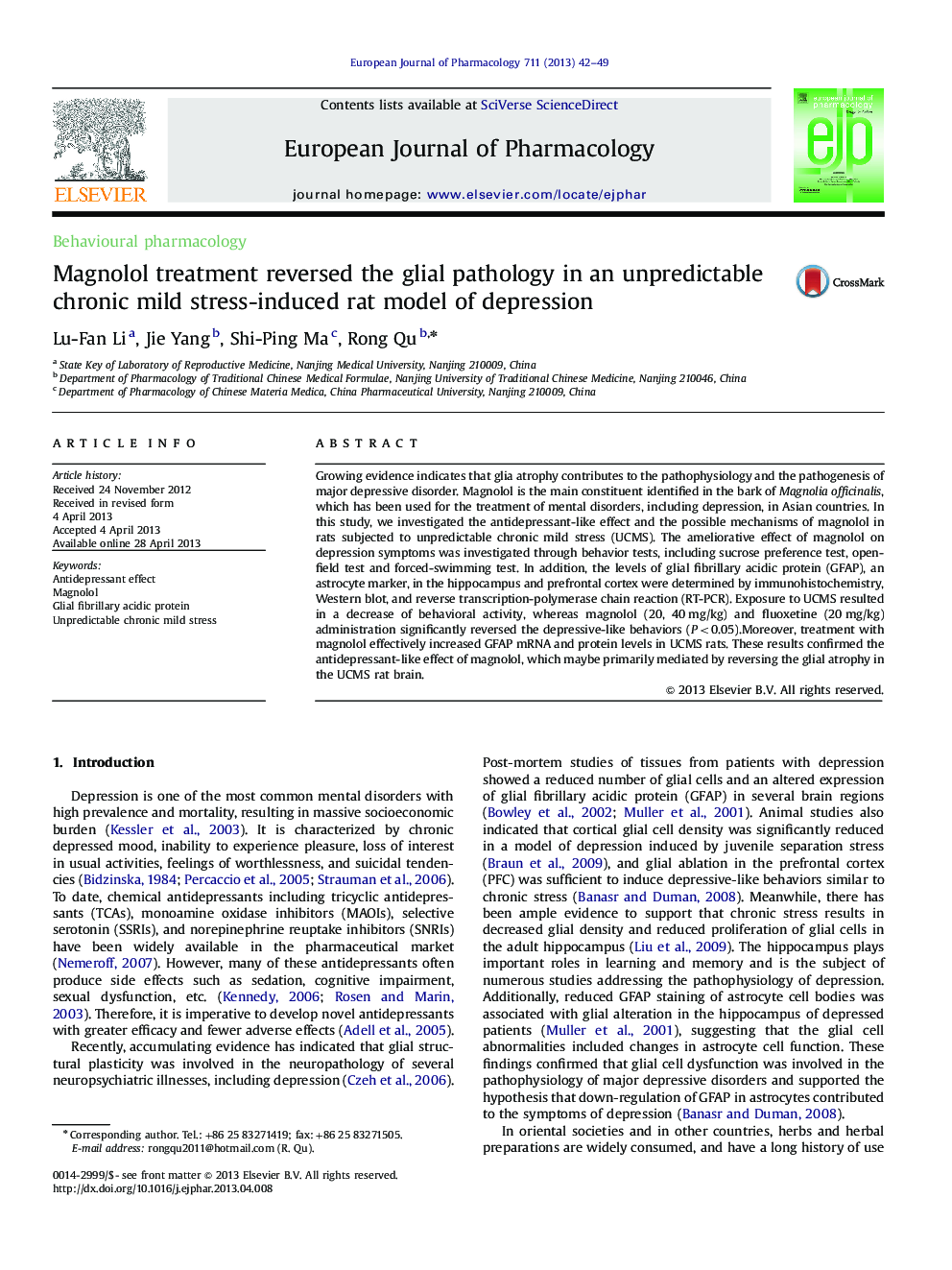| کد مقاله | کد نشریه | سال انتشار | مقاله انگلیسی | نسخه تمام متن |
|---|---|---|---|---|
| 2532142 | 1558970 | 2013 | 8 صفحه PDF | دانلود رایگان |

Growing evidence indicates that glia atrophy contributes to the pathophysiology and the pathogenesis of major depressive disorder. Magnolol is the main constituent identified in the bark of Magnolia officinalis, which has been used for the treatment of mental disorders, including depression, in Asian countries. In this study, we investigated the antidepressant-like effect and the possible mechanisms of magnolol in rats subjected to unpredictable chronic mild stress (UCMS). The ameliorative effect of magnolol on depression symptoms was investigated through behavior tests, including sucrose preference test, open-field test and forced-swimming test. In addition, the levels of glial fibrillary acidic protein (GFAP), an astrocyte marker, in the hippocampus and prefrontal cortex were determined by immunohistochemistry, Western blot, and reverse transcription-polymerase chain reaction (RT-PCR). Exposure to UCMS resulted in a decrease of behavioral activity, whereas magnolol (20, 40 mg/kg) and fluoxetine (20 mg/kg) administration significantly reversed the depressive-like behaviors (P<0.05).Moreover, treatment with magnolol effectively increased GFAP mRNA and protein levels in UCMS rats. These results confirmed the antidepressant-like effect of magnolol, which maybe primarily mediated by reversing the glial atrophy in the UCMS rat brain.
Journal: European Journal of Pharmacology - Volume 711, Issues 1–3, 5 July 2013, Pages 42–49